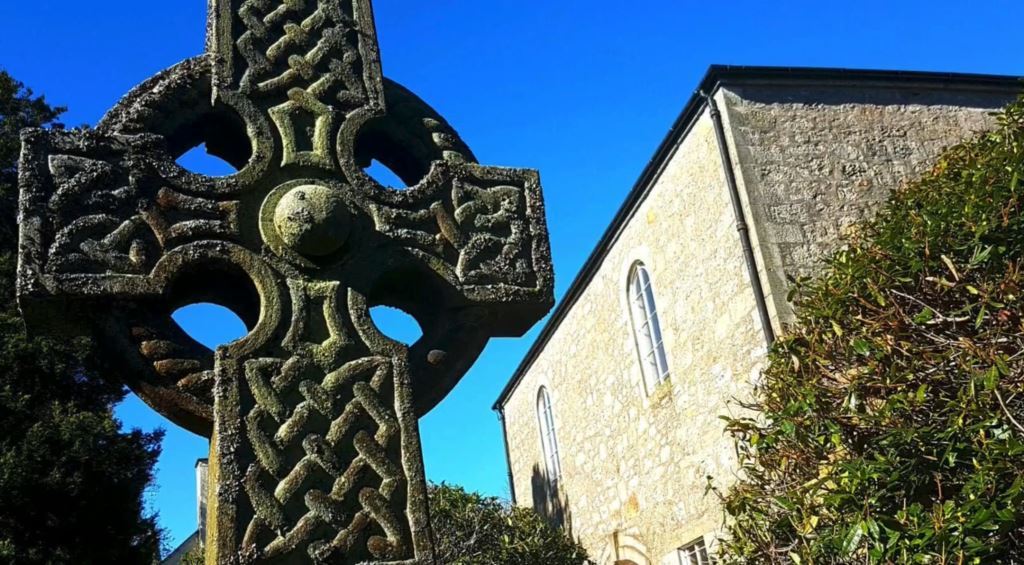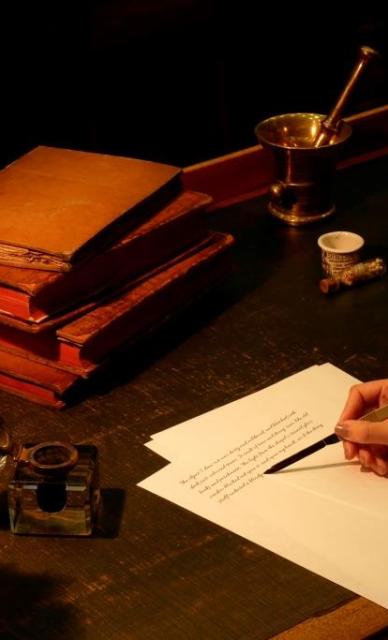Physicians' Gallery Newsletter
Updates on upcoming events, exhibitions and online stories
Empowering medical excellence, shaping healthcare futures.
By the Middle Ages, Celtic social life was primarily organised on the clan system of lineage-based groups owning and occupying a particular territory. Clansmen were usually kinsmen of their chief, but a clan would also include unrelated families drawn in for protection or other benefits and in time assuming the clan name.

The health of a highland chief and his immediate kinsmen would be safeguarded by his hereditary physician according to strict legal requirements. For example, any man who injured a friend or neighbour physically was obliged by law to provide for the care of his victim until recovery was confirmed by the physician.
The care of the common people was another matter, for illness and injury would be treated within the family, with the advice of a wise woman or healer versed in the herbal remedies and healing charms handed down through many generations.
The early physicians appointed to noble Irish families were highly educated men, with connections to the great European medical schools such as Louvain and Padua. Some, such as the O'Canavans - hereditary physicians to the O'Flahertys - established medical schools of their own in Ireland.
Many Irish doctors practised in European countries and one of the Dunleavy family, who were in the service of the O'Donnells in Ireland, became physician to the King of France.
In Celtic Scotland there were comparable medical families. By far the best-known and most widely dispersed of the hereditary physicians in Scotland were the MacBeth or MacBeatha family (in English 'Beaton' and in French 'Bethune'), who originated in Ireland and came to Scotland from about 1300 A.D. onward.
From early days, the Beatons provided medical services to the Royal House of Scotland. In the 14th Century, Patrick MacBeth or Beaton was physician to King Robert I (the Bruce) and it is said that virtually every Scottish, king thereafter until the 18th Century was attended by a Beaton physician. One of them probably attended King James VI and I on his deathbed.
The Beatons also held clan medical positions across Scotland, from the Western Isles to the lowlands. However, with the final disappearance of the Lordship of the Isles in the mid-16th Century, the influence of the Beaton family began to wane and the last recorded Royal Physician from the Beaton dynasty was Fergus Beaton of Islay, who died in 1628.
Like other hereditary physicians, the Beatons practised medicine in the classical tradition of Aristotle and Galen but combined this with the use of medicinal plants and other traditional therapeutic measures, whose efficacy they doubtless verified by their own observations. We also know from Beaton manuscripts in the National Library of Scotland that they were versed in the use of botanical remedies.
It should be noted that, whereas in other parts of the British Isles surgeons developed from barbers and until comparatively recently were of inferior status to physicians, the Celtic physicians combined medical and surgical skills, and were expert in such procedures as trephining, venesection and cutting for the stone. Hence the old Gaelic saying about the Beaton family:
Clann 'ic Beatha a'ghrinn,
Luchd snaidheadth chnamh is chuislean.
MacBeths of the polished ways,
Men who slit bones and veins.
The attachment to clans of hereditary learned men began to decline in the 17th Century and died out in the succeeding one. In the early period of the clan system, bards and breves were ranked higher than leeches in the chief's hierarchy of attendants but physicians gradually rose in status and in the end were the last of the learned men to be attached to the chiefs' retinues.
As late as 1784, descendants of the hereditary medical dynasties were still established as physicians to some of the great families in the Western Isles, though generally clan affiliations had ceased. Many members of the medical families continued to practise medicine but in the Lowland Scottish tradition based on university medical schools and apprenticeships, rather than in the traditional Celtic way.
Author: Dr Ross Mitchell, Fellow of the Royal College of Physicians of Edinburgh.

Updates on upcoming events, exhibitions and online stories